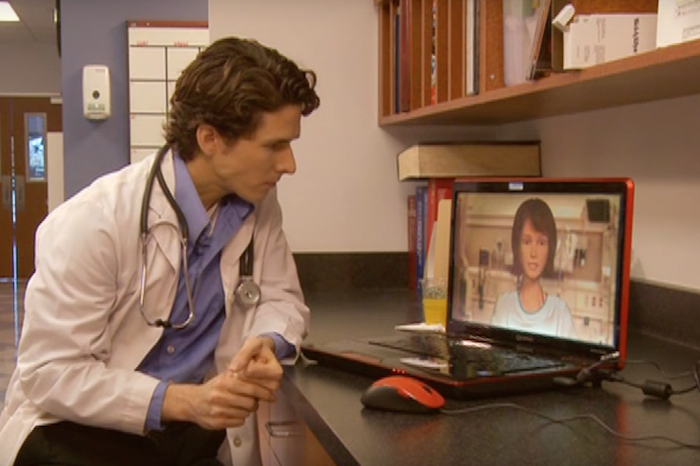Delivering bad news in a caring way — and coping with a patient’s reaction — is a key skill for doctors. Researchers at U-M and Medical Cyberworlds, Inc. are studying how virtual human technology helps medical students learn the best approaches. MPathic-VR, a computer application, allows students to talk with emotive, computer-based virtual humans who can see, hear, and react to them in real time. The computer application assesses the students’ body language, facial expressions, and communication strategies to produce real-time responses from the virtual human and give suggestions based on the students’ strengths and weaknesses.
“Finding an effective way to assess and teach advanced health care communication skills has been a long-standing challenge,” says U-M family medicine professor Michael Fetters. “Medical learners have a great need for practical, innovative methods to help them master the complexities of health care communication and develop excellent communication skills — both verbal and nonverbal. Ours is the first-ever research showing that it can be done effectively with virtual reality.”

